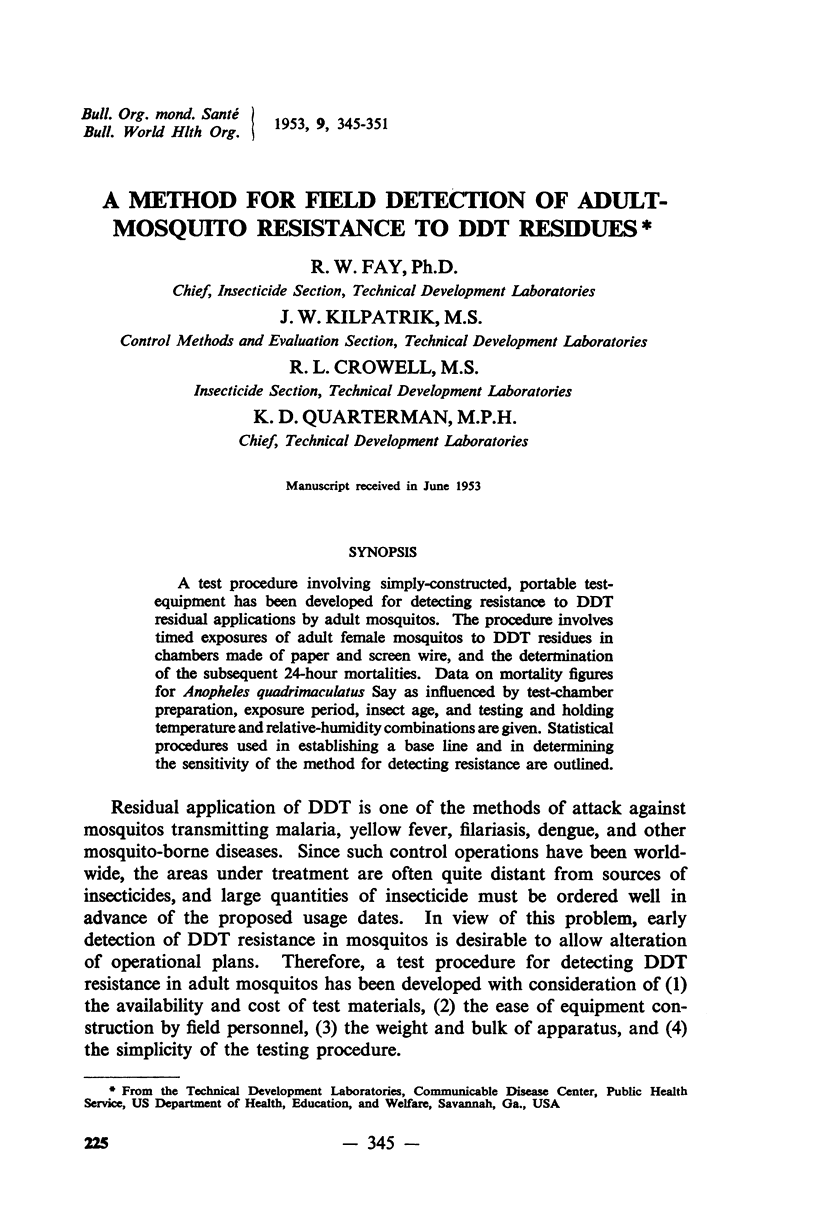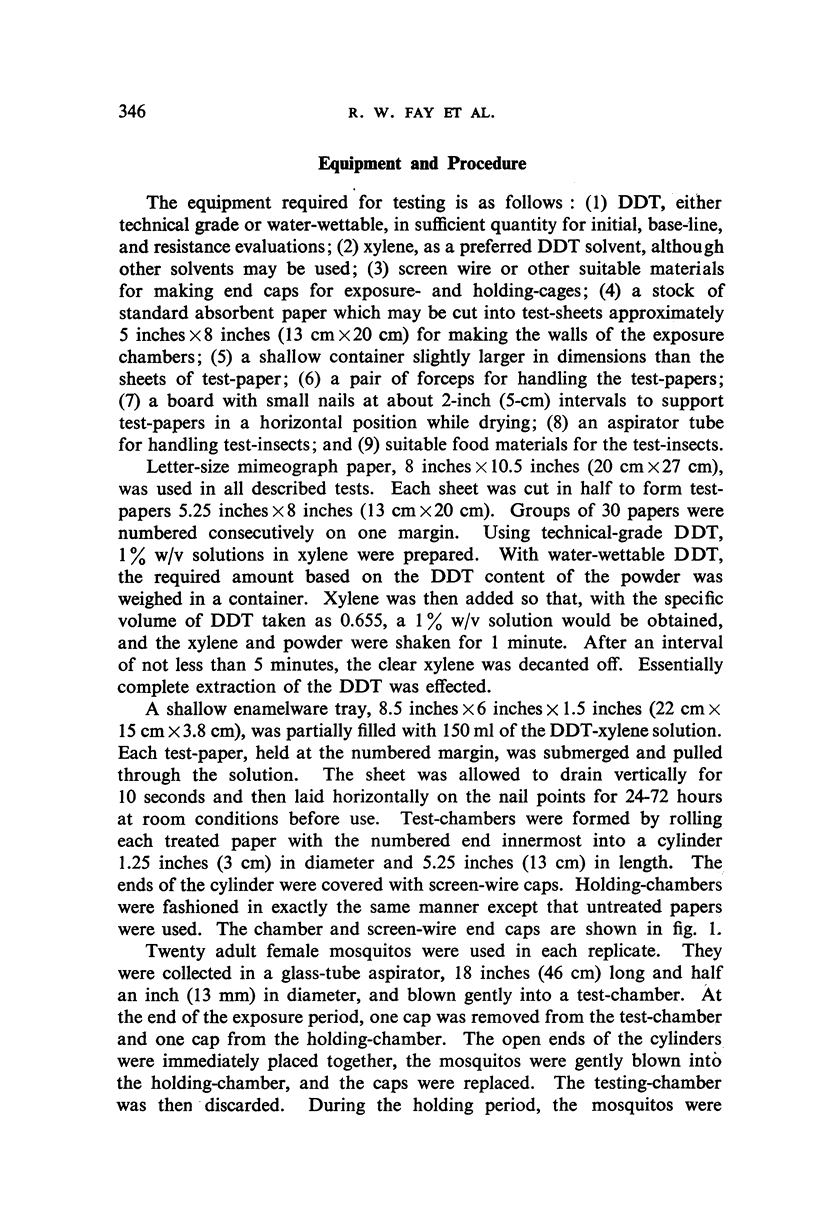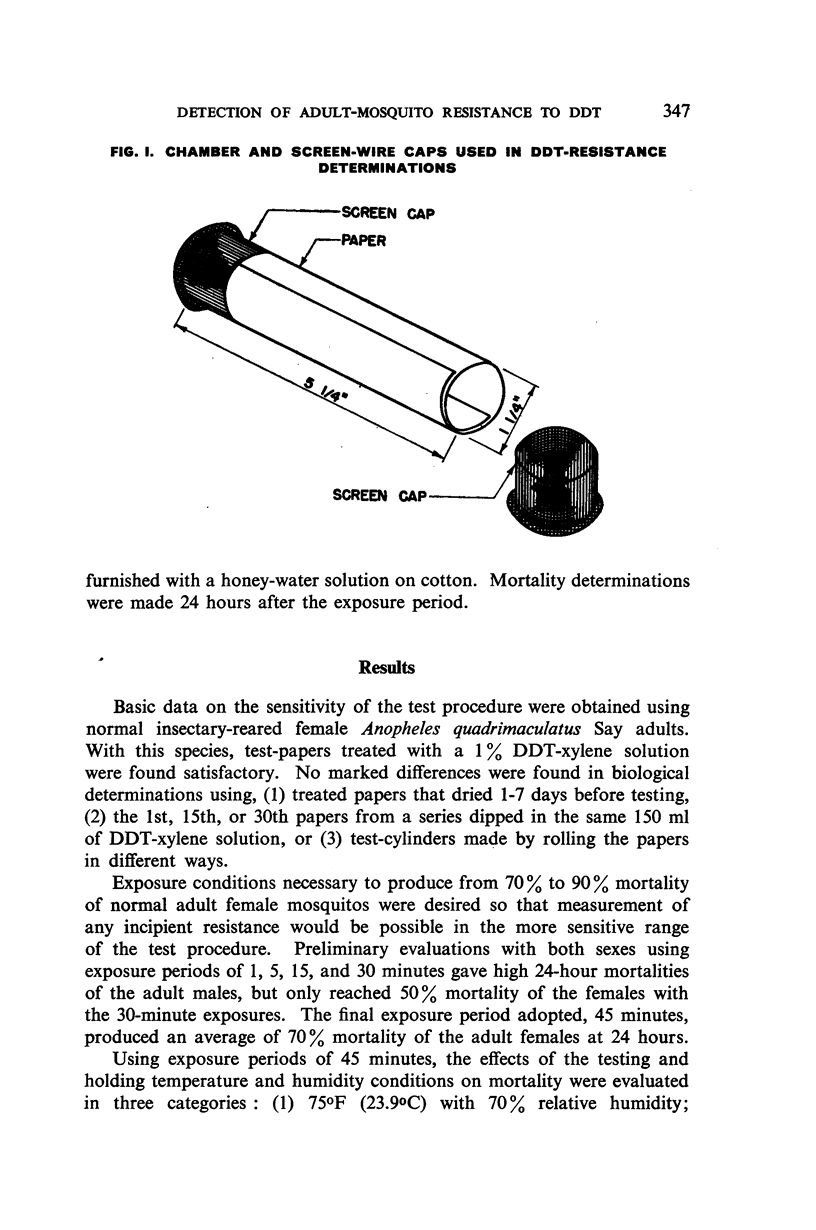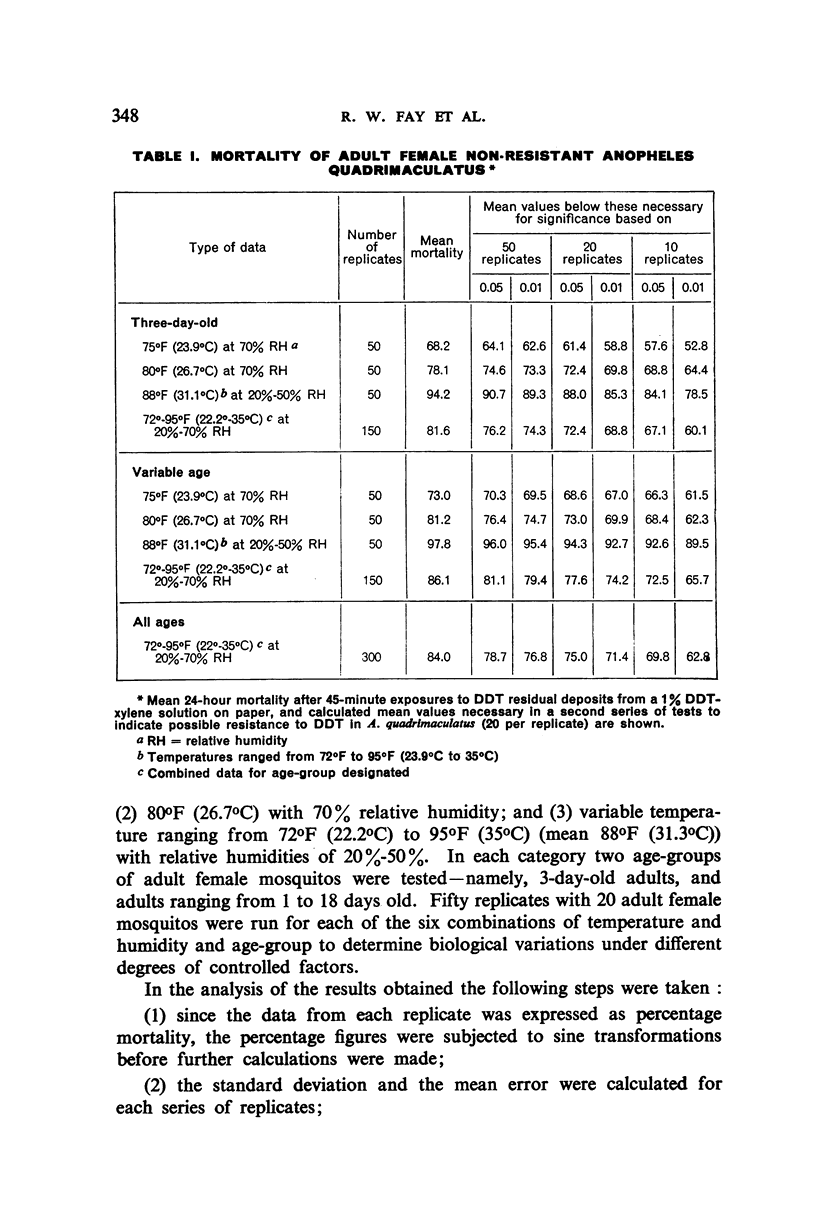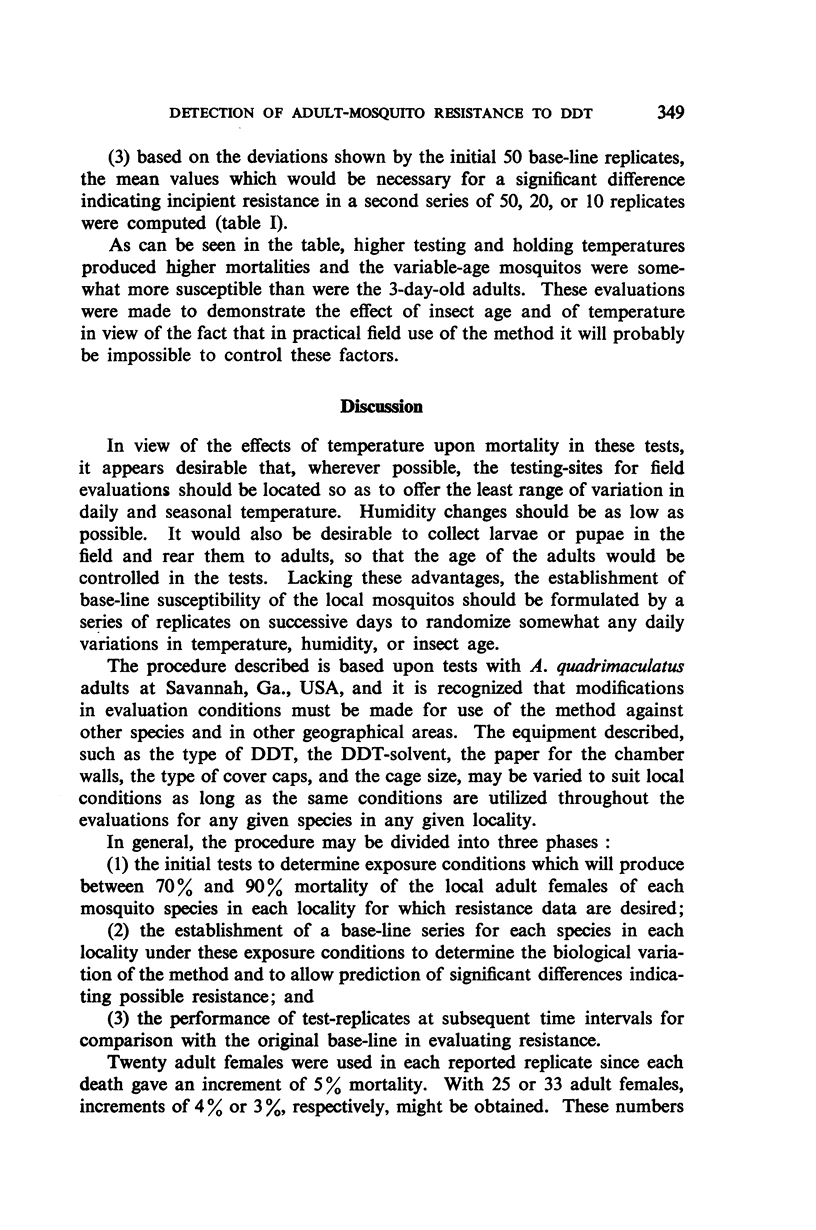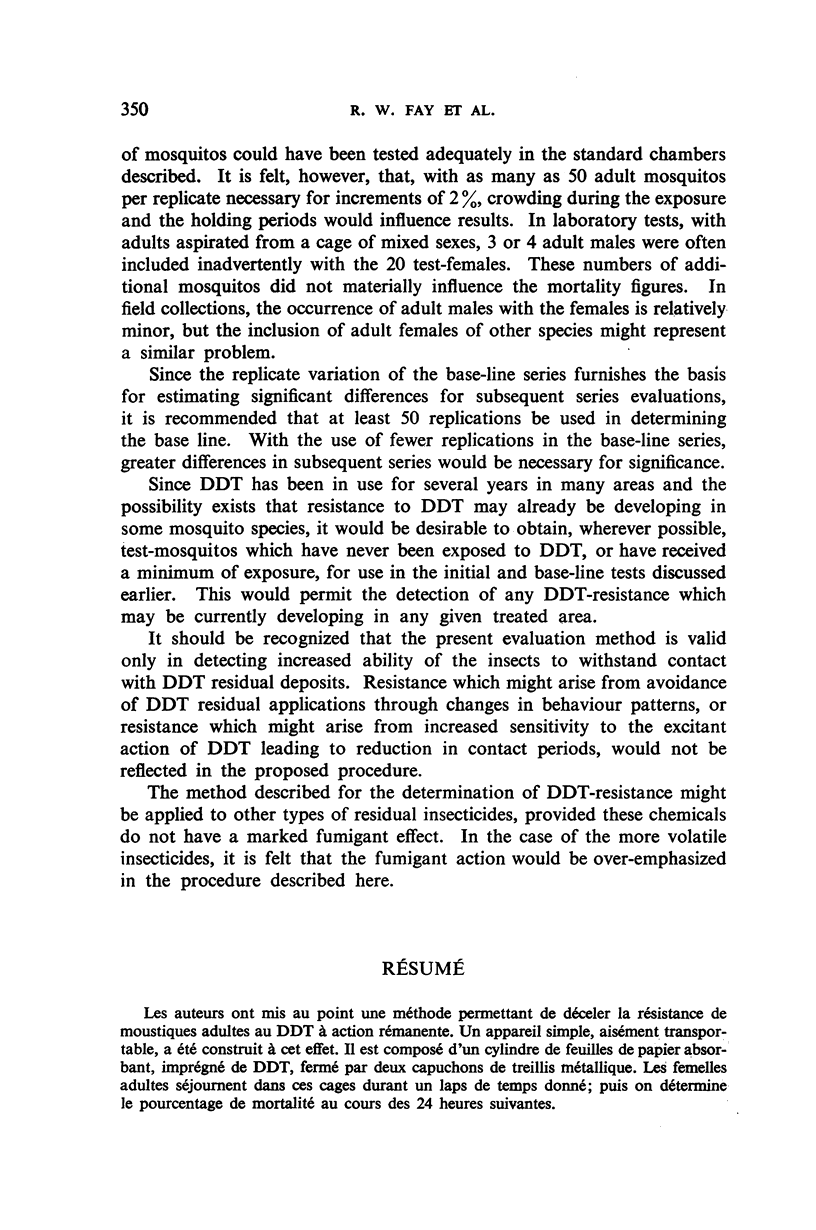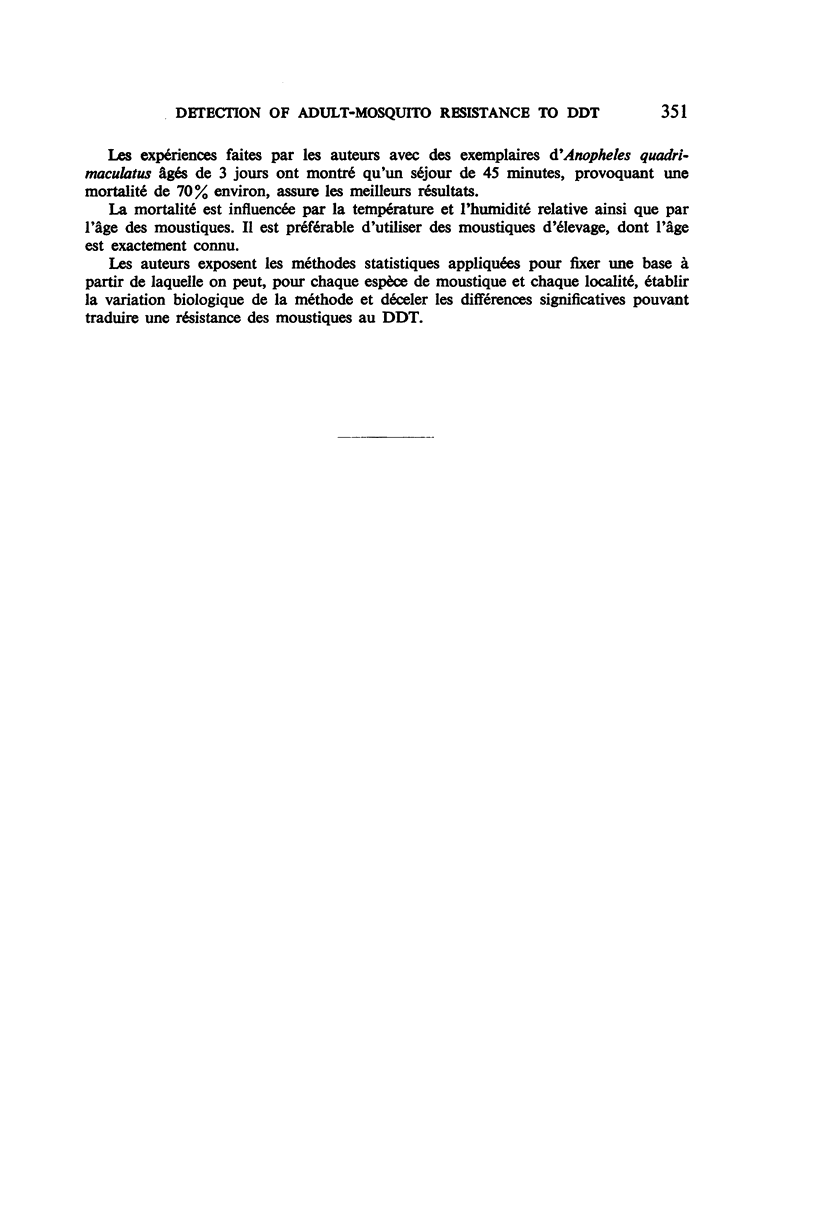Abstract
A test procedure involving simply-constructed, portable test-equipment has been developed for detecting resistance to DDT residual applications by adult mosquitos. The procedure involves timed exposures of adult female mosquitos to DDT residues in chambers made of paper and screen wire, and the determination of the subsequent 24-hour mortalities. Data on mortality figures for Anopheles quadrimaculatus Say as influenced by test-chamber preparation, exposure period, insect age, and testing and holding temperature and relative-humidity combinations are given. Statistical procedures used in establishing a base line and in determining the sensitivity of the method for detecting resistance are outlined.
Full text
PDF